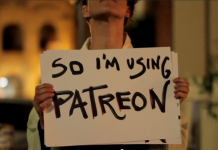Kickstarter has been a success for many people and companies looking to get capital for new projects. However, some campaigns don’t reach the intended goal, and still some reach the goal but get delayed in giving rewards.
Yet, sometimes a campaign is funded and backers never get any money.
So what happens? In the case of a playing card deck that did not get delivered, the Washington state attorney general has intervened.
The campaign: Asylum playing cards were supposed to be printed on Bicycle paper stock. The cards were to be designed by Serbian artist Milan C. A pledge of $9 would get a backer one deck of cards. The cards were inspired by classic horror movies, according to the Kickstarter campaign.
In Oct. 31, 2012, the campaign was funded, receiving the $25,000 it asked for from more than 800 backers.
Yet, no one has received their rewards, although the estimated delivery was supposed to be Dec. 2012.
“Consumers need to be aware that crowd funding is not without risk,” Washington Attorney General Bob Ferguson said in a statement. “This lawsuit sends a clear message to people seeking the public’s money: Washington state will not tolerate crowd-funding theft.”
This isn’t the first time a Kickstarter campaign was funded and the backers didn’t get their rewards. Although, this is believe to be the first lawsuit brought against someone using the crowd-sourcing platform.
Earlier this year, a comic artist raised $50,000 in funds to bring an online series into a physical book. The artist, John Campbell, created Pictures for Sad Children. The only people who were sad at this point are those who never received what they paid for. Campbell wrote on the Kickstarter wall that anyone who had not received the book — because some did — will not be getting one. He ran out of money and, well, too bad.
To make matters worse, Campbell also said that he would start burning books for every email he received asking about the books. A video posted to the Kickstarter page showed he has already destroyed some of the books in a pyre.
Based on the comments of that Kickstarter, it seems that those who received the book have tried to help out other backers by creating PDFs and distributing them to others.
Another artist, Paul Jenkins is trying to make good over what Campbell wrongly did by sending backers of Campbell’s campaign a PDF, but as of right now there hasn’t been a major move against Campbell not fulfilling his rewards.



































The difference in the two as I understand how Kickstarter works.
You can fail to produce an actual product – a bit of software I backed did not come through. That is the breaks of crowd funding, caveat emptor.
If your Kickstarter campaign promised rewards for levels of participation then you *have* to provide those under the rules or you must refund the participants money.
So in the first case with the cards they are not being sued over failing to provide the actual card decks but the rewards to backers that they did not provide.
In the second case the author was a ummm… jerk…. and so did not provide the actual product and is not held accountable.
I did a bit of research for us at the library to see about what the rules are for a Government agency to back a project and to post our own projects.
What did you find out about government agencies being able to do something like a Kickstarter?
Susan,
Here is the email I received from the Kickstarter admin staff:
“Thanks for writing in. Libraries were my favorite places to visit when I was a kid, and we’re lucky enough to have a small one here in our office. They’re great!
There’s nothing in our terms of service that would prevent a Government Agency from posting or pledging to a project. A legal representative of the company must meet eligibility requirements and register for a Kickstarter account (you can always edit your profile to reflect your organization’s name later on). The Amazon Payments account, however, should be in the organization’s name.
I would also recommend reading our guidelines to make sure your project and account meets our requirements. You can find those here: https://www.kickstarter.com/help/guidelines
I understand this may seem quite daunting but please don’t hesitate to ask us any questions as they arise!
Hope this is helpful and best of luck with your project!”
So I passed that along to the Library accounting and legal team. Once we have the go ahead I hope to work on a project or two there.